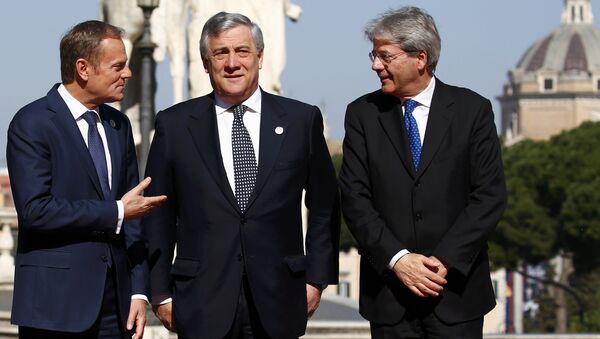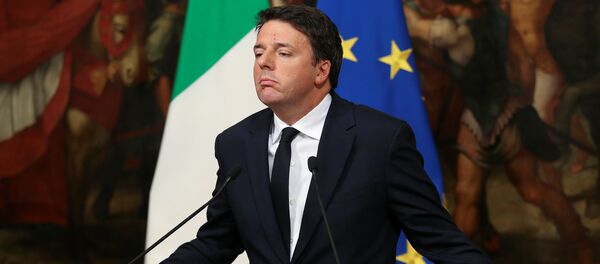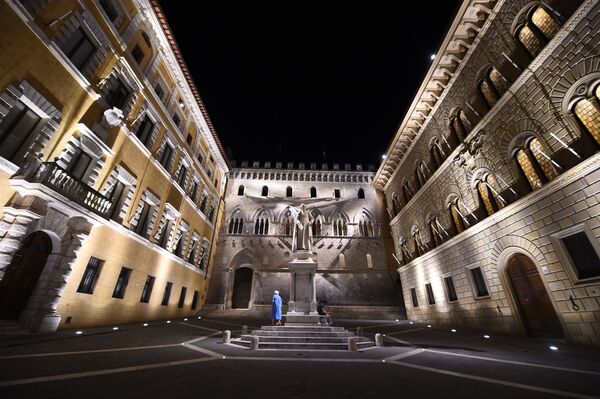Italy was warned, in a report, February 2017, that for 2016, Italy's 2017 Draft Budgetary Plan projects the debt-to-GDP ratio to peak at 132.8 percent — twice the 60 percent reference value, according to the EU Stability and Growth Pact (SGP), which aims to keep all Eurozone members' deficits under control.
Italy — Report prepared in accordance with Article 126(3) of the Treaty | European Commission https://t.co/JJUnwnwDiN
— adriano de ambrosis (@adrianodeambr) February 27, 2017
It was given until, the end of April to introduce new legislation to tackle its deficit, despite the fact that its general government deficit declined to 2.6 percent of GDP in 2015 (from 3 percent in 2014), up by 0.5 percentage points from the 2015 level. All this is within the limit of 3 percent required by the EU.
The issue has been a major issue for Italian Prime Minister Paolo Gentiloni, who took over after the resignation of Matteo Renzi, who effectively lost a public vote of confidence because of his pro-Brussels stance.
Gentilone had been under pressure to kick back against Brussels — along with other southern Eurozone member states struggling with debts — and refuse to make savage cuts. However, his cabinet, late evening April 11, voted to being in the required fiscal policies demanded by Brussels.
Banking Bailout
Not only is the Italian government having to reduce its debt-to-GDP ratio, but it is also having to organize a bailout of many of the country's banks.
Italy was forced to apply to the Commission and the European Central Bank (ECB), 2016, to rescue Monte dei Paschi as part of another package of support needed by Italy's banks. However, there are tensions between Italy and the ECB because the central bank is arguing that they need further capital from the Italian government — more taxpayers' money that it had expected.
Meanwhile, two more banks — Banca Popolare di Vicenza SpA and Veneto Banca SpA — have applied for state aid to remain afloat — an issue that has to be agreed by the Commission and the ECB.
This has put further pressure on both the EU and the Italian Government, which may have capitulated to Brussels in return for more bank bailout assistance.




